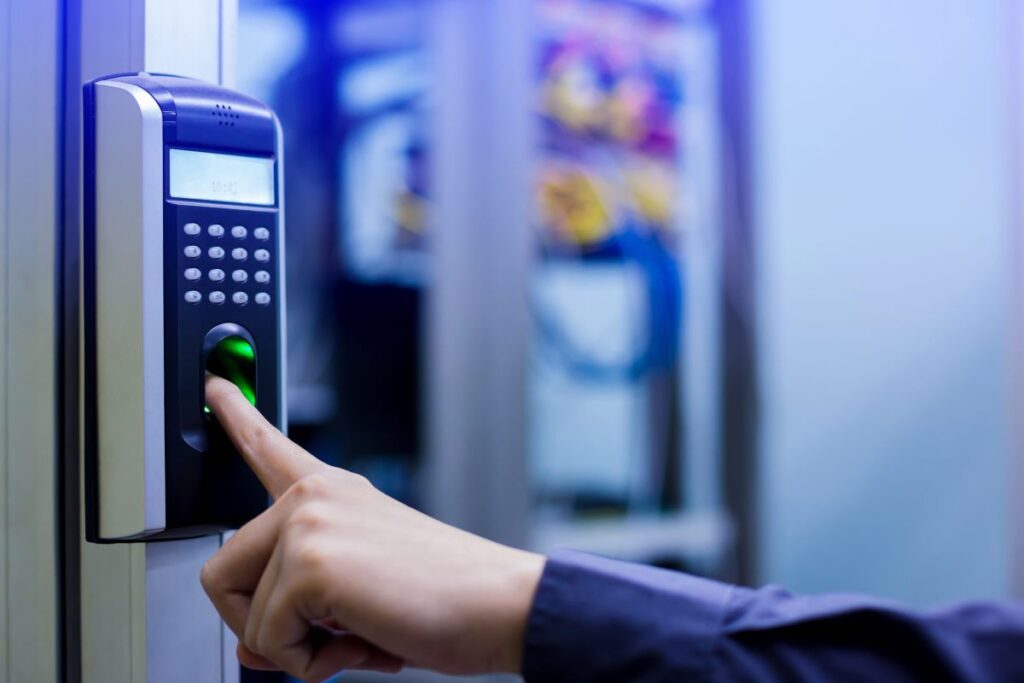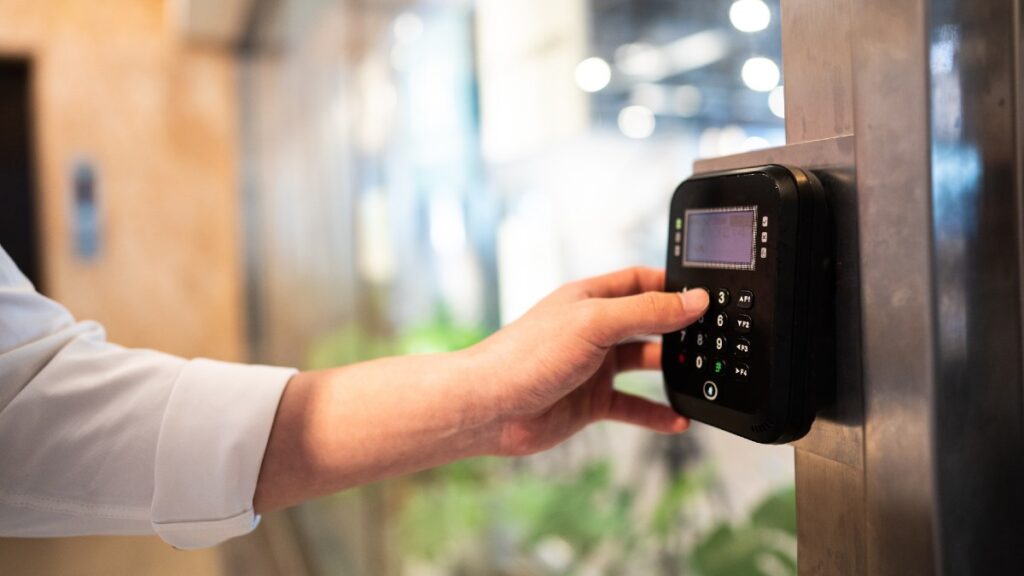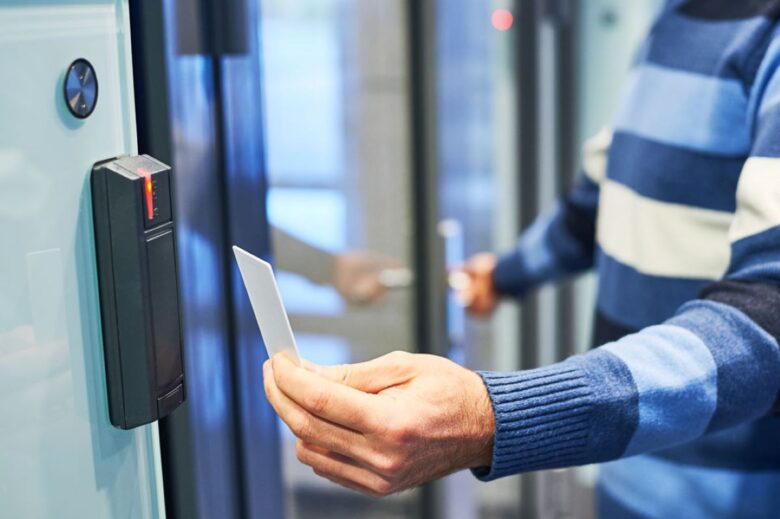In today’s fast-paced business environment, ensuring the security of your premises is paramount. An effective access control system not only protects your assets but also enhances the safety of your employees and clients. For businesses in Sydney, selecting the right access control system can be a daunting task given the myriad of options available. This article aims to guide you through the essential considerations and features to look for when choosing an access control system tailored to your business needs.
Understanding Access Control Systems
Access control systems are designed to manage who can enter or exit a particular area within a building or facility. These systems can range from simple lock-and-key mechanisms to sophisticated biometric scanners. Understanding the different types of access control systems is crucial for making an informed decision.
Types of Access Control Systems
There are several types of access control systems available, each with its own set of features and benefits. The most common types include:
- Keypad Systems: These systems require users to enter a code to gain access. They are relatively inexpensive and easy to install, making them suitable for small businesses.
- Card-Based Systems: Employees are issued cards that they swipe or tap on a reader to gain entry. These systems offer more flexibility and can easily be updated or deactivated.
- Biometric Systems: These advanced systems use fingerprint, facial recognition, or iris scanning technology to grant access. They provide a high level of security but can be more costly.
Benefits of Implementing an Access Control System
The advantages of installing an access control system extend beyond mere security. Some key benefits include:
- Enhanced Security: Access control systems significantly reduce the risk of unauthorised entry, protecting sensitive areas of your business.
- Audit Trails: Many systems provide logs of who accessed which areas and when, allowing for better monitoring and accountability.
- Increased Convenience: Modern systems can be integrated with other technologies, such as alarm systems and CCTV, providing a comprehensive security solution.
Moreover, implementing an access control system can lead to improved employee morale and productivity. When staff feel secure in their work environment, they are more likely to focus on their tasks without the distraction of potential security threats. Additionally, these systems can be tailored to meet the specific needs of a business, allowing for different access levels based on job roles. For instance, while administrative staff may require access to sensitive documents, maintenance personnel might only need entry to utility areas.
Furthermore, the evolution of access control technology has led to the emergence of mobile access solutions, where employees can use their smartphones to unlock doors. This not only streamlines the entry process but also reduces the risk of lost or stolen access cards. As technology continues to advance, businesses have the opportunity to adopt more innovative solutions that enhance security while also providing ease of use for their employees. The integration of artificial intelligence in these systems is also on the rise, allowing for smarter monitoring and response capabilities, which can further bolster the overall security framework of any organisation.
Assessing Your Business Needs
Before selecting an access control system, it is essential to assess the specific needs of your business. Consider factors such as the size of your premises, the number of employees, and the nature of your operations. Understanding these elements will help you choose a system that not only fits your current requirements but also has the flexibility to adapt as your business grows or changes.
Additionally, it may be beneficial to engage with stakeholders from various departments to gather insights on their unique security concerns and operational needs. This collaborative approach ensures that the chosen access control system aligns with the overall strategic objectives of the organisation, providing a comprehensive solution that enhances security while supporting business efficiency.
Identifying Vulnerable Areas
Conducting a thorough risk assessment can help identify vulnerable areas within your premises. High-traffic zones, such as entrances and exits, as well as sensitive areas like server rooms or financial departments, should be prioritised for enhanced security measures. It is also wise to consider external factors such as the local crime rate and the history of security incidents in your area, as these can influence the level of protection required.
Furthermore, incorporating surveillance technology alongside access control can provide a multi-layered security approach. For example, installing CCTV cameras in conjunction with access control systems can help monitor activities in real-time, deterring potential breaches and providing valuable evidence should an incident occur. This holistic view of security not only protects physical assets but also fosters a culture of safety within the workplace.
Employee Access Levels
Different employees may require varying levels of access. For instance, management may need access to all areas, while general staff may only require entry to specific zones. A well-designed access control system allows for customisable access levels, ensuring that employees can only enter areas relevant to their roles. This not only protects sensitive information but also streamlines operations by limiting unnecessary access.
Moreover, it is crucial to regularly review and update access permissions, especially when employees change roles or leave the company. Implementing a robust onboarding and offboarding process can significantly reduce the risk of unauthorised access. Additionally, integrating biometric authentication methods, such as fingerprint or facial recognition, can further enhance security by ensuring that access is granted only to those who are explicitly authorised, thereby safeguarding your business’s most critical assets.

Key Features to Look For
When evaluating access control systems, several key features should be considered to ensure the chosen system meets your business requirements.
Scalability
As your business grows, your access control system should be able to grow with it. Look for systems that offer scalability, allowing you to add more users or integrate additional features without a complete overhaul.
Integration Capabilities
Modern access control systems can often be integrated with other security measures, such as alarm systems and video surveillance. This integration can streamline security management and provide a more comprehensive approach to safeguarding your business.
User-Friendly Interface
A system that is easy to navigate and manage can save time and reduce training costs. Look for systems that offer intuitive interfaces, allowing administrators to manage access rights and monitor activity with ease.
Cost Considerations
Budget is often a significant factor when selecting an access control system. While it may be tempting to opt for the cheapest option, it is essential to consider the long-term costs associated with maintenance, upgrades, and potential security breaches.
Initial Investment vs. Long-Term Savings
Investing in a high-quality access control system may require a more substantial initial outlay, but it can lead to significant long-term savings. A robust system can prevent costly security breaches, reduce insurance premiums, and improve operational efficiency.
Hidden Costs
Be aware of potential hidden costs that may arise during installation and maintenance. These can include fees for additional hardware, software updates, and ongoing technical support. It is advisable to obtain a detailed quote that outlines all potential costs before making a decision.
Choosing the Right Provider
Once you have assessed your needs and identified the features you require, the next step is to choose a reliable access control system provider. The right provider can make a significant difference in the effectiveness of your security measures.
Reputation and Experience
Research potential providers by examining their reputation and experience in the industry. Look for companies that have a proven track record of delivering high-quality access control solutions to businesses similar to yours.
Customer Support and Training
Consider the level of customer support and training offered by the provider. A responsive support team can assist with troubleshooting and maintenance, while comprehensive training ensures that your staff can effectively use the system.
Compliance and Regulations
In Australia, businesses must adhere to various regulations regarding data protection and privacy. When selecting an access control system, ensure that it complies with relevant laws, such as the Privacy Act 1988 and the Australian Privacy Principles.
Data Security
Access control systems often handle sensitive employee and client information. Therefore, it is crucial to choose a system that prioritises data security. Look for features such as encryption, secure data storage, and regular software updates to protect against vulnerabilities.
Regular Audits and Updates
Maintaining compliance requires regular audits and updates to your access control system. Establish a schedule for reviewing access logs and updating user permissions to ensure ongoing compliance with regulations.

Conclusion
Choosing the right access control system for your Sydney business is a critical decision that can significantly impact your overall security strategy. By understanding the various types of systems, assessing your specific needs, and considering key features, you can make an informed choice that enhances the safety of your premises.
Investing in a reliable access control system not only protects your assets but also fosters a secure environment for employees and clients alike. As the landscape of security continues to evolve, staying informed about the latest technologies and best practices will ensure that your business remains protected against potential threats.
Ultimately, the right access control system is one that aligns with your business goals, budget, and operational requirements. By taking the time to evaluate your options thoroughly, you can safeguard your business for years to come.
Related : Security Alarm Response: Why Fast Reaction Times Matter


